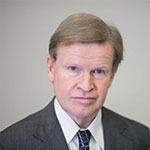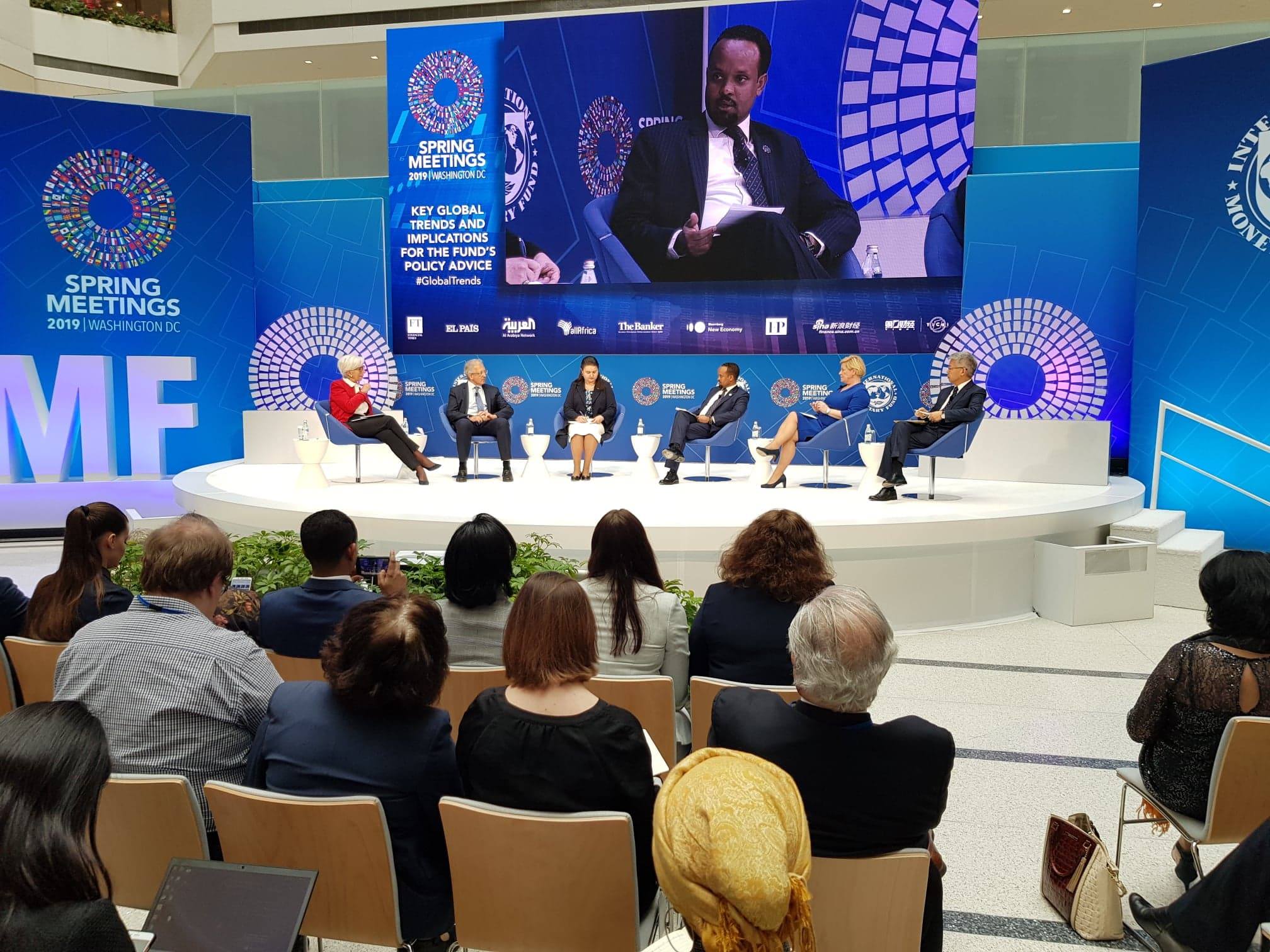
Commentaries | Feb 22,2020
Aug 3 , 2024
By Harold James
The humming world economy and recent stock-market euphoria would seem to be at odds with our crisis-torn, fragmenting world. Seemingly irresolvable conflicts in Gaza and Ukraine have produced deep rifts both internationally and within rich, industrialised countries. Unable to agree on what is in their national interests, democracies are struggling to formulate coherent foreign policies. In short, political crises are everywhere, except in the economic data.
What does this mismatch tell us? Are the underlying sources of economic growth making us more secure despite everything, or should we be more worried about what is yet to come?
The case for pessimism does seem strong. After the negative supply shock generated by COVID-19, and then by Russia's war in Ukraine, people lost hope that economics alone could solve their problems. As wars proliferate and tensions rise, the risk of new negative supply shocks has grown. No longer is anybody harbouring illusions that the economy is immune to politics.
While Switzerland once effectively mediated international conflicts, its recent efforts have been in vain. The June Burgenstock peace conference sought to produce a blueprint to bring peace to Ukraine, but neither Russia nor China showed up, and emerging-market powers such as India, Brazil, Saudi Arabia, Thailand, and Indonesia declined to sign the final communique.
Meanwhile, global economic governance is also deteriorating. The World Trade Organisation (WTO) is moribund, and the Bretton Woods institutions (the World Bank and the International Monetary Fund), currently celebrating their 80th birthday, are showing their age. Even China's alternative version of globalisation, the Belt & Road Initiative, is faltering under the debt burden.
These and other developments explain the popularity of the term "polycrisis." Coined in the 1990s by the French philosopher Edgar Morin, European Commission President Jean-Claude Juncker took it up in the 2010s and then made into a viral meme by the historian Adam Tooze during the pandemic.
Morin was reflecting on Francis Fukuyama's contention that historical development tended toward liberal democracy and market capitalism. Reflecting on the years after the Cold War, Morin worried that every domain of human existence was haunted by crisis – from the economy, society, and the traditional household to values, youth, science, and law. The world had generated dangerous feedback loops that threatened to overwhelm regulation, compounding the mortal perils of ecological devastation and nuclear conflict.
"Crisis" is derived from the Greek for choice (krino): it was used classically to describe a turning point, often in a disease, when the patient turned to death or, alternatively, to recovery. And "poly" comes from polis, which broadly means "a state or society especially when characterised by a sense of community." The plural is polloi, and we perhaps should speak of "polloicrises." Our polloi, our communities, are disintegrating.
Reflecting on the trajectory of the term crisis, the great historian of concepts Reinhart Koselleck observed: "Such a tendency toward imprecision and vagueness, however, may itself be viewed as the symptom of a historical crisis that cannot as yet be fully gauged."
But crisis and polycrisis are not new, of course. Both concepts are embedded in human history, and thus also in the human psyche. The profound shock generated by episodes of famine, disease, and war – the premodern horsemen of the apocalypse – tends to leave the impression that all challenges are linked. As Claudius says in Shakespeare's Hamlet, "When sorrows come, they come not single spies but in battalions."
The end of the Roman empire – with its over-expansion, failure to provision large cities, escalating inequality, famines, and external attacks – was surely beset by a polycrisis. Similarly, in the 1340s, after defaults by states (the English monarchy, above all) and the bankruptcies of the major financial houses in Florence, there was more war, which helped spread the Black Death across Europe. Thus, the late-medieval version of globalisation was savagely interrupted.
The oddity of the current moment is that in the face of so much doom and gloom, solutions seem to be both closer at hand and more far-ranging than at any point in the past. The pace of technical innovation – often in response to crises – is accelerating, and there is warranted optimism about the capacity of artificial intelligence to deliver major improvements in medicine (new drugs, new techniques) and education (new methods of learning), as well as generating alternatives to carbon energy or the widespread use of pesticides.
Perhaps we should be optimistic, then, focusing more on the "poly" than the "crisis." Poly itself has become a guiding meme of the 2020s with the new interest in another old phenomenon: polyamory. The polyamorous psychotherapist Jessica Fern has pioneered terms such as "Polysecure" and "Polywise", echoing Morin's parallel between individual small-scale crises and world events. Indeed, terms used for personal life are becoming applicable to broader political trends.
China and the United States, for example, have embarked on a "conscious uncoupling", which is also how Gwyneth Paltrow described her breakup with Chris Martin. The world might be more secure than we think. Though we are facing polynegative supply shocks, these will generate new innovations that could lead to greater, not less, prosperity and security.
PUBLISHED ON
Aug 03,2024 [ VOL
25 , NO
1266]


Commentaries | Feb 22,2020

Commentaries | Oct 26,2019

News Analysis | Oct 27,2024

My Opinion | Apr 26,2019

Radar | Jun 04,2022

View From Arada | May 31,2025

Agenda | Nov 23,2019

Fortune News | Apr 13,2019

Radar | Jul 02,2022

Commentaries | Mar 02,2019

Photo Gallery | 171424 Views | May 06,2019

Photo Gallery | 161664 Views | Apr 26,2019

Photo Gallery | 151382 Views | Oct 06,2021

My Opinion | 136289 Views | Aug 14,2021





Dec 22 , 2024 . By TIZITA SHEWAFERAW
Charged with transforming colossal state-owned enterprises into modern and competitiv...

Aug 18 , 2024 . By AKSAH ITALO
Although predictable Yonas Zerihun's job in the ride-hailing service is not immune to...

Jul 28 , 2024 . By TIZITA SHEWAFERAW
Unhabitual, perhaps too many, Samuel Gebreyohannes, 38, used to occasionally enjoy a couple of beers at breakfast. However, he recently swit...

Jul 13 , 2024 . By AKSAH ITALO
Investors who rely on tractors, trucks, and field vehicles for commuting, transporting commodities, and f...

Oct 4 , 2025
Eyob Tekalegn (PhD) had been in the Governor's chair for only weeks when, on Septembe...

Sep 27 , 2025
Four years into an experiment with “shock therapy” in education, the national moo...

Sep 20 , 2025
Getachew Reda's return to the national stage was always going to stir attention. Once...

Sep 13 , 2025
At its launch in Nairobi two years ago, the Africa Climate Summit was billed as the f...

Oct 5 , 2025 . By NAHOM AYELE
In Meqelle, a name long associated with industrial grit and regional pride is undergo...

Oct 5 , 2025 . By BEZAWIT HULUAGER
The federal government is set to roll out a new "motor vehicle circulation tax" in th...

Oct 5 , 2025 . By NAHOM AYELE
The Bank of Abyssinia is wrestling with the loss of a prime plot of land once leased...

Oct 5 , 2025 . By BEZAWIT HULUAGER
The Customs Commission has introduced new tariffs on a wide range of imported goods i...